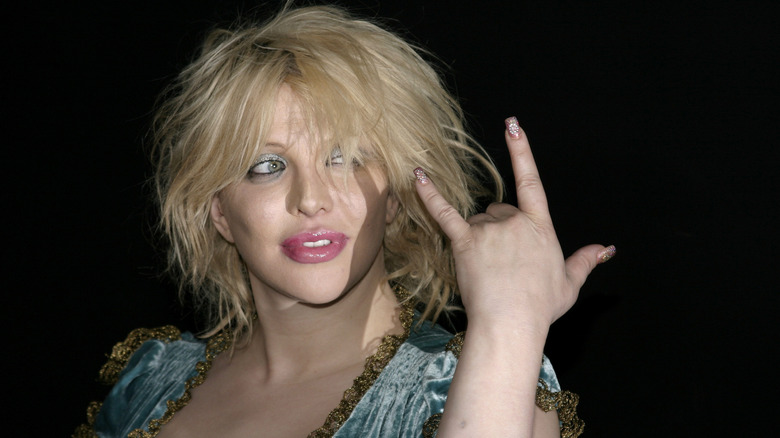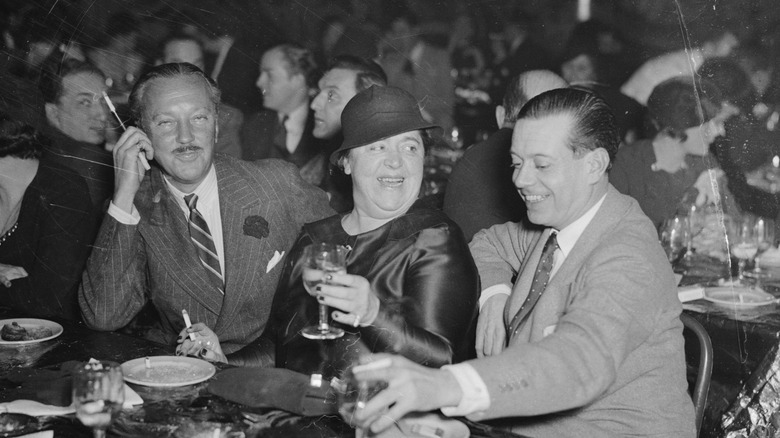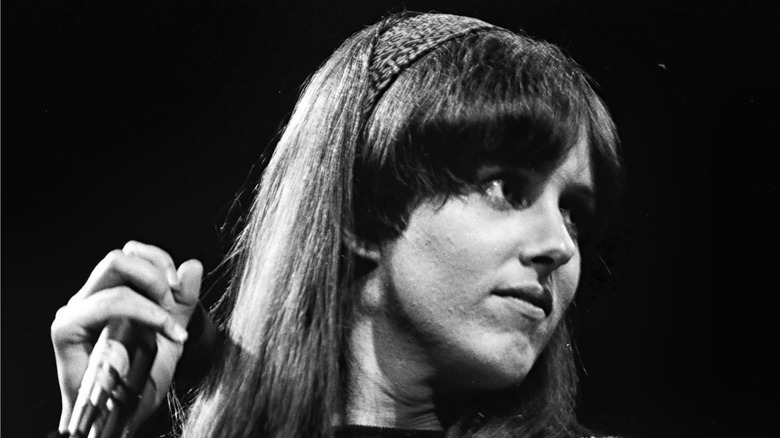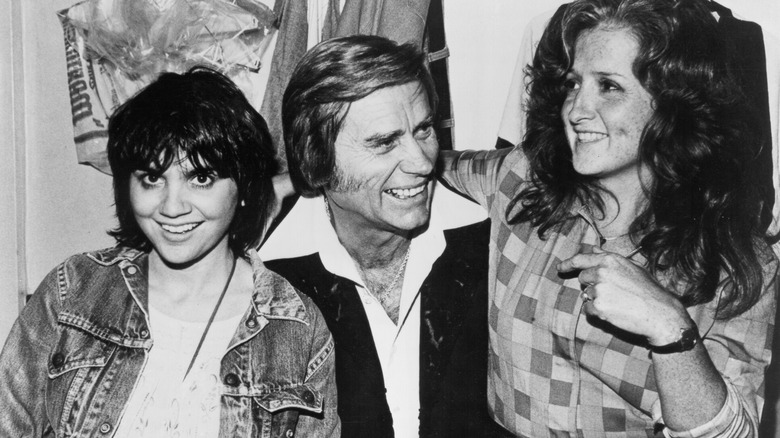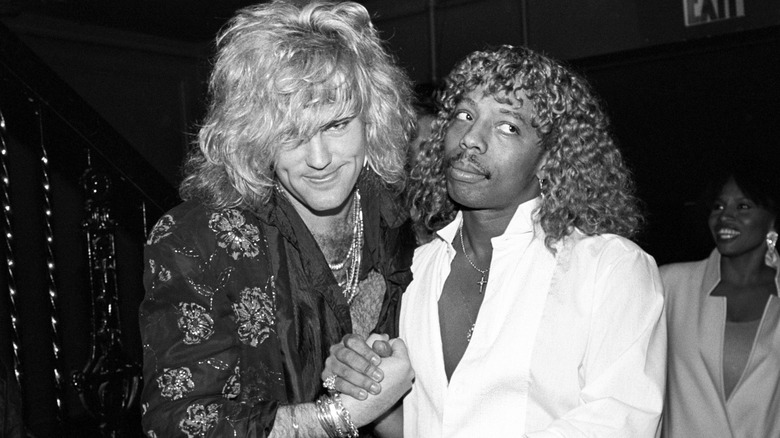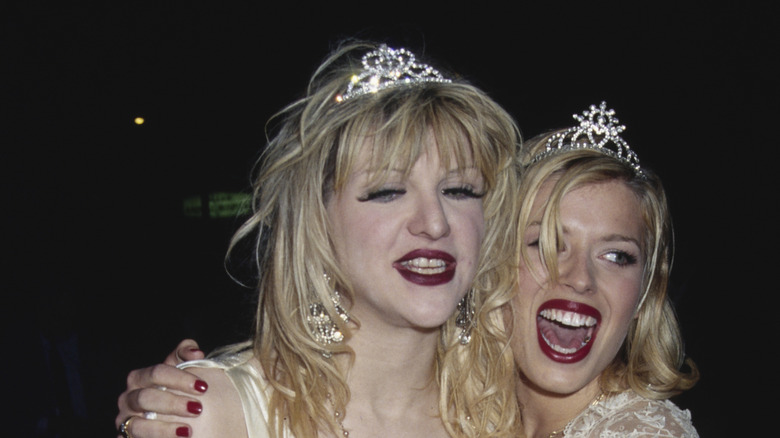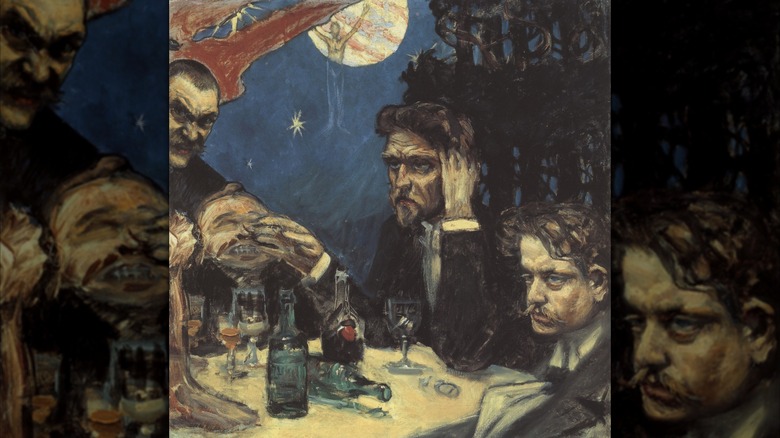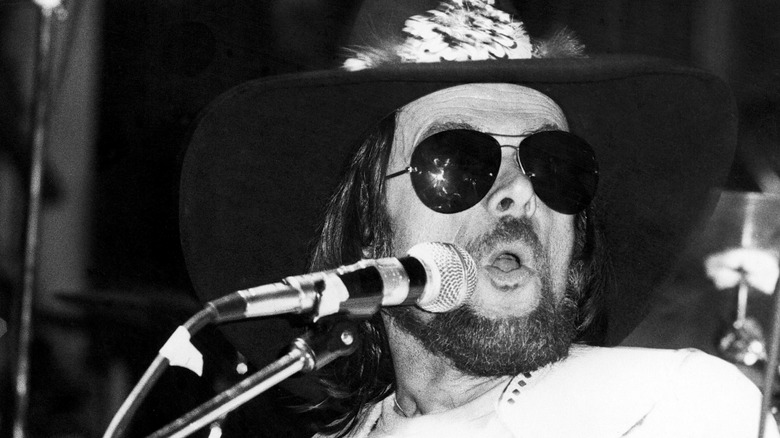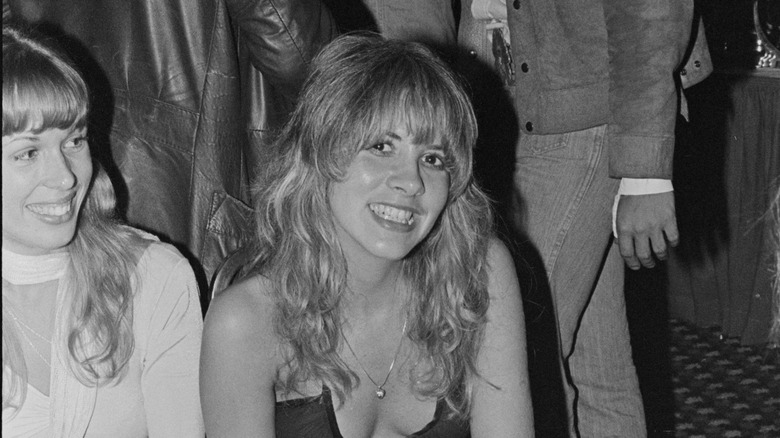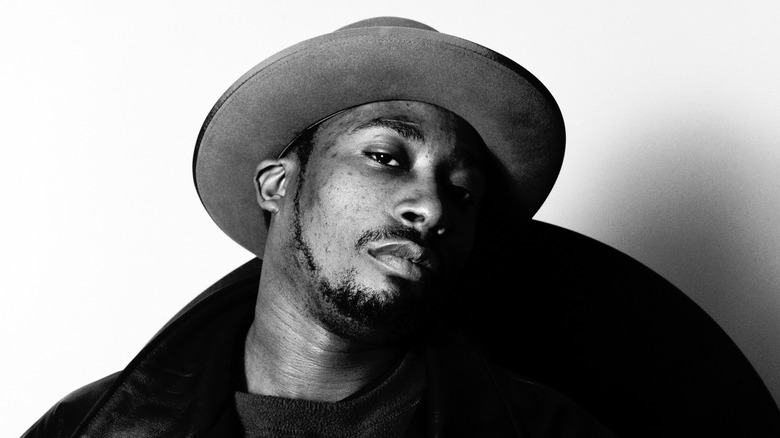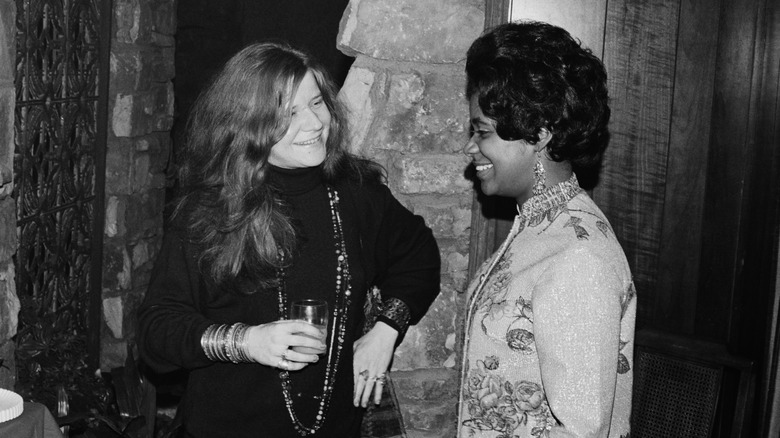Musicians Who Partied Way Too Hard
There are plenty of well-known male rockers who partied way too hard during their careers: Keith Moon, Ozzy Osbourne, every single member of the Rolling Stones, and Mötley Crüe ... the list goes on and on. But what about, well, everyone else? What ladies of rock could drink those guys under the table, and who were the hardest partiers of less famously debauched genres of music? There are some surprising answers to these questions, including country stars and famous classical composers.
For some of these creative geniuses, the partying was fun while it lasted. For others, it led to their downfall or even their premature death. Some were using substances and sex to escape their demons, while others just wanted to have a good time while they were at the top of the world, and they did. Here are some of the musicians who partied way too hard.
Cole Porter
Cole Porter (pictured right) was one of the most talented and prolific composers of the 20th century. Despite writing over 1,200 songs, he was almost as famous for his lifestyle as his work. Actor Kevin Kline played Porter in the film "De-Lovely" and he spoke to The Telegraph about the musician, saying, "When he worked, he worked very hard; he brooked no interruption. And when he partied, he partied very hard. His life was a kind of theatre. He had an enormous appetite for pleasure, gastronomical and sexual."
While he was married to a woman in a mutually beneficial relationship, Porter was openly gay at a time when that was dangerous. She was fine with his lifestyle as long as he was discreet, but since he tended to go a bit wild when he spent time in Hollywood, she rarely joined him there.
No matter where he was, Porter threw notorious parties full of sex, drugs, cross-dressing, and other famous people. Sometimes, the combination of these things led to incidents. Kline explained one party that got Porter in trouble internationally: "The palazzo he rented in Venice on the Grand Canal was immense, over the top. He brought in a jazz band from Paris and converted a barge into a dance floor. But then there was an indiscretion with the mayor of Venice's nephew or son, and the city sort of asked him to leave." Sadly, injuries he sustained in a horseback riding accident in 1937 brought most of Porter's partying to an end.
Grace Slick
Grace Slick was the lead singer of Jefferson Airplane and Starship. By her own account, she spent the '60s and '70s drinking to excess, dropping acid, and thoroughly enjoying her hedonistic lifestyle. Slick explained the vibe of the time to Uncut, saying, "If you were in a rock 'n' roll band in the '60s, the only thing you couldn't do was kill people. Everything else was acceptable. ... You could screw anybody and take any drugs you wanted. The only downside was we didn't measure the drugs we took. A lot of us died because we weren't good with the chemistry."
While Slick knew many of the famous musicians who tragically overdosed in those decades, she said she never thought it could happen to her. In fact, her one regret seems to be staying completely sober during the 1980s. Slick said, "Fortunately, I enjoyed every trip I had. It could've gone the other way, because sometimes it does." But she didn't just want to enjoy acid herself. One time, Slick allegedly wanted to dose President Richard Nixon with LSD. There was also the drinking, for which she did eventually go to rehab. When Slick drank, she became a terrible person. One time, she brandished a gun at a cop (it was unloaded). Unsurprisingly, she was arrested on several occasions.
As well as legal and illegal substances, Slick enjoyed the company of men, including Jim Morrison and all but one member of Jefferson Airplane (only because he never asked).
George Jones
Tammy Wynette's relationship with George Jones resulted in one of the biggest power couples country music has ever seen, but it, like all his relationships, was badly affected by his partying and addictions. During his career (as well as four marriages), his lifestyle went from bad to worse, but it was clear Jones had a problem with alcohol long before the height of his fame. His first marriage only lasted a year, and when she filed, his wife cited his addiction as one of the reasons she was seeking a divorce. His second wife once hid his car keys to stop him from driving to the liquor store, so Jones took his riding lawnmower to get the booze. He did this again with his third wife Wynette, this time going to a bar on his mower.
Eventually, Jones started using cocaine as well. People paid him back for money they owed him with drugs, and anyone who wanted to take advantage of him could do so as long as they helped him get high. The star's career was affected by his substance abuse. In 1959, he needed 83 takes to nail a song, since he was drinking the whole time. He earned the nickname "No-Show Jones" because he was often too incapacitated to play a gig, missing 54 shows in 1979.
He ended up in the hospital several times, and his weight plummeted. Fortunately, friends staged an intervention, and that led to Jones getting the professional help he needed.
Rick James
No one partied harder than Rick James, possibly because he saw music as intrinsically linked with drinking and smoking from the time he was a child, as he once explained (via LA Review of Books). His legendary exploits were only made more extraordinary because of the other celebrities involved. According to the musician's autobiography, James and Jim Morrison once took an insane trip to Disneyland together, while very high, only to be turned away at the gate. At a party in Hawaii, Salvador Dali asked to draw James. The resulting napkin sketch was sadly destroyed when the singer went swimming with it in his pocket. James was also invited to a party at Roman Polanski and Sharon Tate's home in 1969 but was too hungover to attend — which probably saved his life.
At the height of his fame, James developed a severe cocaine addiction, spending an estimated $6,000-8,000 per week on the drug. His debauchery was unbelievable. James' daughter remembers visiting him and having to step over naked women on the floor first thing in the morning. He attended orgies regularly and claimed he even did illegal things with animals.
As his celebrity faded, James got even more out of control, eventually facing charges of kidnapping and torture. He went to rehab several times (sometimes alongside Aerosmith's Steven Tyler) but did not manage to stay completely clean. While his cause of death in 2004 was cardiac and diabetes-related, not an overdose, James' autopsy found there were nine different drugs in his system, including meth and cocaine, when he died.
Courtney Love
On a talk show hosted by the now-disgraced actor Russell Brand, Courtney Love told a story about a very strange brush with royalty she had: "Prince Andrew turns up at my house at one in the morning, and he wants to party ... I don't know what he expected at my house. I answered the door and he was there, with a bodyguard, and I was, like, 'Hi'" (via Louder). While she says they had a boring night drinking tea and chatting on her couch, it wouldn't have been crazy for the Duke of York to think Love's house was where the party was at any given time. Her reputation as a party girl preceded her, as did her use of drugs. As she explained to Brand, "It does help you relax if you take quite a lot of heroin before a show."
While there were undoubtedly many wild nights for Love, two different people remember the Vanity Fair Oscar party they attended with her in 1995 as the best/craziest night of their lives. It affected each of them so much that they wrote totally unrelated essays about it in Nylon and Vulture. They recount how Love was the life of the party, and the booze flowed freely before many from the Vanity Fair party went back to Love's rented bungalow at the Chateau Marmont, where the fun continued until dawn. The raucous party annoyed the hotel's other guests, who complained about the noise.
Jean Sibelius
The Finnish violinist and composer Jean Sibelius enjoyed hanging out with other intellectuals and creatives and having deep talks. Of course, alcohol was also involved. Sibelius drank so much and so often at a local restaurant with his friends that he wouldn't go home for days at a time and would instead send notes to his wife asking how their kids were. Not surprisingly, his long-suffering spouse threatened to divorce him on many occasions. Despite this, Sibelius would later insist that these sessions didn't include as much booze as you might think. Others who witnessed them disagree — and then there is the above painting, done by one of the binges' participants, with Sibelius in the lower right.
Sibelius knew he had a problem and that it was negatively affecting his life. He wrote, "This boozing – in itself an exceptionally pleasant occupation — has really gone too far" (via BBC Music Magazine).
A series of throat operations finally forced him to give up smoking and drinking. The composer wrote, "Life is something totally different without these stimulants. I never imagined it could have come to this." Unsurprisingly, this period of abstinence did not last. Sibelius returned to drinking after seven years, shortly after the beginning of World War I, and kept it up until his death. While possibly apocryphal, it is alleged that in his old age the composer said, "All of the doctors who ordered me not to smoke or drink alcohol died a long time ago, but I go on living." Sibelius died in 1957, aged 91.
Johnny Paycheck
One of the baddest bad boys of Outlaw Country, Johnny Paycheck wasn't as famous as many of his contemporaries, but he could party with the best of them. After modest success in Nashville in the 1960s, Paycheck went to California. But things didn't go as well for him there, and he would perform in exchange for beer. His biggest hit, "Take This Job and Shove It," hit No.1 in 1977, but the success and notoriety that came with it only exacerbated his use of alcohol and drugs.
This lifestyle resulted in bankruptcy, as well as multiple arrests and convictions. Paycheck's problems with the law dated all the way back to his time in the military when he was court-martialed and jailed for hitting a superior officer.
The Outlaw Country musician's problems with partying and excessive alcohol use came to a head in 1985. While driving to his mother's house for the Christmas holiday, Paycheck stopped at a bar. Another patron, Larry Wise, recognized him and, despite Paycheck making it clear he did not want to make friends, tried to start a conversation with the singer. Wise's version of the story is that he asked Paycheck to come back to his house for a home-cooked meal of turtle soup. Paycheck took this to be a sarcastic comment, and asked, "Do you see me as some kind of country hick?" (via Rolling Stone). Then he pulled his gun. Paycheck fired, and the shot grazed Wise's head as he fled.
Stevie Nicks
Stevie Nicks was enormously successful both as a member of Fleetwood Mac and as a solo artist. But while she made a lot of money over the years, it flowed right out again. The singer estimates she spent "millions" of dollars on cocaine during the 1970s. In an interview with ABC News, she said, " ... for two, three years it was really fun. But it turns into a monster. So it's not worth it to do it for those two or three years of fun because it will eventually kill you."
Doing drugs as a member of a successful rock band in the '70s was hardly unheard of. To celebrate "Rumours" going platinum, Fleetwood Mac partied for 48 hours straight (Nicks was so out of it that she forgot to take out her contacts, which then fused to her eyeballs, almost blinding her). But even among her peers, Nicks took the party lifestyle to a different level. She once explained (via Far Out), "All of us were drug addicts, but there was a point where I was the worst drug addict. I was a girl, I was fragile, and I was doing a lot of coke. And I had that hole in my nose. So it was dangerous."
A doctor explained to Nicks that doing more cocaine could be deadly since she had done so much damage to her nose. It was enough to convince the singer to go to rehab — at least, she did once she finished a seven-month tour.
ODB
Wu-Tang Clan member Old Dirty Bastard's partying antics are still notorious in New York City two decades after his death. The comedian Tracy Morgan told "Sway in the Morning" (via Hot New Hip Hop) that, for a time, the rapper's hard-partying didn't affect his ability to make music. "[ODB] would come see me perform and then me and him would get in the car, in the drop-top and go crazy around New York City. Just wildin'. And then one night we hung out 'til like, four in the morning. ... And we went in the studio and I seen a complete change. He's business, man."
But the line between career and partying started to blur. After a video shoot, he brought a record company A&R rep with him to buy weed. The world witnessed what was going on with him when ODB interrupted an unrelated Grammy winner's speech after Wu-Tang Clan lost to Puff Daddy at the awards ceremony in 1998. Visibly inebriated, ODB uttered the now iconic line, "Wu-Tang is for the children."
In an impromptu interview, VICE talked to ODB's uncle, who explained how his nephew's partying took a bad turn. "He got too heavy into drugs. I tried to help him. ... Everyone tried to help him. He didn't want to stay in rehab. That's why he got locked up for two years. When he came out, he started on them drugs again ..." Despite claiming he wanted to get clean, ODB died of an accidental drug overdose in 2004.
Janis Joplin
Janis Joplin was trying to escape a terrible adolescence in Texas when she came to San Francisco to become a singer. However, she almost forgot about that goal because she started doing speed. Later, she switched to taking heroin. And her drink of choice was well-known: Southern Comfort. As she became more successful, the messy, loud woman she was on stage became expected of her, part of her appeal. Joplin told one interviewer (via The Guardian), "People aren't supposed to be like me, make out like me, drink like me, live like me, but now they're paying me $50,000 a year for me to be like me."
Writing to a friend in the final year of her life, Joplin referenced a previous conversation the two had on one of the ways to deal with depression: "... get stoned and try and have as good a time as possible ..." (via "Janis: Her Life and Music"). However, she wanted to get clean and did manage it for several months before she died. It was in a misguided attempt to keep from drinking when recording her final album that she started using heroin again.
Janis Joplin's autopsy report found that she died of a heroin overdose. She was self-aware enough to know that this was how it could end, considering her lifestyle. When she died at 27, in 1970, she had already written a will that instructed thousands of dollars be spent on a combination wake and all-night party for her friends.
If you or anyone you know needs help with addiction issues or mental health, contact the relevant resources below:
-
The Substance Abuse and Mental Health Services Administration website or contact SAMHSA's National Helpline at 1-800-662-HELP (4357).
-
The Crisis Text Line by texting HOME to 741741, call the National Alliance on Mental Illness helpline at 1-800-950-NAMI (6264), or visit the National Institute of Mental Health website.
